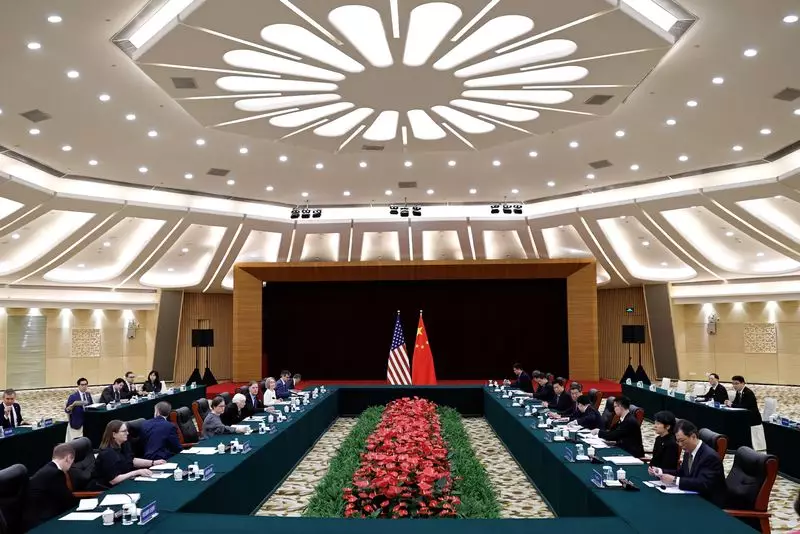Chinese state media has criticized U.S. Treasury Secretary Janet Yellen’s recent comments on China’s excess manufacturing capacity. According to the state news agency Xinhua, Yellen’s remarks are seen as an attempt to revive the “China threat” rhetoric and pave the way for more protectionist policies from the United States. The editorial from Xinhua accuses Yellen of undermining China’s domestic growth and international cooperation, suggesting that Washington should focus on boosting innovation and competitiveness within its own borders instead of resorting to fear-mongering tactics.
Yellen expressed concerns about the global economic impact of China’s excess manufacturing capacity during meetings with Chinese officials in Guangzhou. She pointed to China’s overproduction of electric vehicles, solar panels, semiconductors, and other goods that are flooding global markets, leading to a demand slump in China’s domestic market. Yellen argued that this situation is detrimental to China and is also harming producers in other countries.
The Xinhua editorial also criticized the narrative surrounding “Chinese overcapacity” in the clean energy sector, suggesting that it could be used as a justification for implementing more protectionist policies to protect U.S. companies. The editorial implies that Washington may use national security concerns as a pretext for imposing trade barriers in areas where its dominance is being challenged.
Yellen’s visit to China included meetings with Vice Premier He Lifeng and Guangdong Province Governor Wang Weizhong in Guangzhou. She is scheduled to travel to Beijing for further discussions with officials, including Premier Li Qiang and People’s Bank of China Governor Pan Gongsheng. The agenda for these meetings includes discussions on various economic issues, but the focus on China’s manufacturing overcapacity appears to be a key concern for the U.S. Treasury Secretary.
Overall, the Chinese state media’s response to Yellen’s comments reflects a growing tension between the U.S. and China over trade and economic policies. The accusations of fear-mongering and protectionism suggest a deepening divide in the relationship between the world’s two largest economies. As both countries navigate complex economic challenges, finding common ground on issues such as manufacturing overcapacity will be crucial for maintaining stability and cooperation in the global economy.

